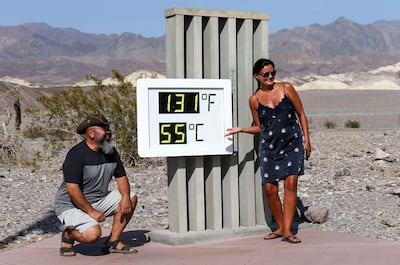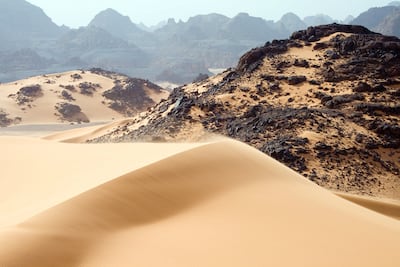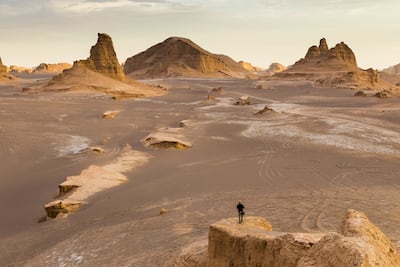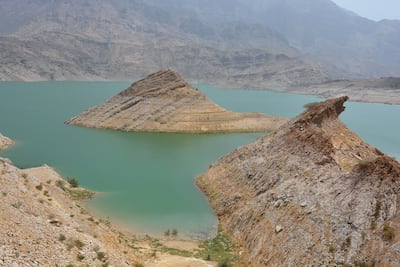Last year, the world experienced the hottest day recorded on Earth.
According to data from the United States National Centres for Environmental Prediction, the world's average temperature reached 17.01ºC last July, surpassing the previous record set in August 2016, when average global temperatures reached 16.92ºC.
This year does not seem to be faring any better.
There are currently heatwave warnings around the world, including in parts of the US where more than 75 million people are under extreme heat alerts with record-high temperatures that have been matched or broken this weekend.
In Europe, Greece has experienced its earliest heatwave on record, which led to the closure of the Acropolis in Athens, with temperatures surpassing 40ºC in many parts of the country. Italy is about to reach temperatures between 42ºC and 44ºC, while a week-long heatwave continues in Cyprus with red alerts being issued as some areas reached 45ºC.
Much of northern China, including the capital Beijing, is currently under a heat warning from its National Meteorological Centre. The observatory has issued an orange alert – the second most severe warning – as temperatures surpass 40ºC. India is also currently undergoing its longest heatwave, which began last month. In northern parts of the country, as temperatures soared past 45ºC.
Climate change is constantly rewriting records when it comes to the world's hottest places, and temperatures upwards of 50ºC are no longer a rarity.
From Kebili in Tunisia to Kuwait's Mitribah, here are the 14 hottest places on the planet.
Where are the hottest places on Earth?

Death Valley, California, US
Furnace Creek in the US lives up to its name, with temperatures in Death Valley reaching 56.7ºC in 1913, one of the highest ever registered.
Although some scientists debate the reliability of historic readings, Death Valley reportedly also topped 54.4ºC in the summer 2020, so there's little doubt that it's one of the hottest places on Earth.
Kebili, Tunisia
Located in the south of Tunisia and home to the biggest Saharan salt pan, Kebili recorded the highest temperature in Africa, a sultry 55ºC in 1931.
Mitribah, Kuwait
A verified reading of 54ºC was set in Kuwait, in the city of Mitribah in 2016, and the highs keep coming.
Last year, the country's local media outlets reported that 53ºC had been recorded in Al Jahra, making it one of the hottest places on the planet.
Turbat, Pakistan
Pakistan has one of the highest temperature ranges in the world, spanning everything from extremely high to very low, besides monsoons, droughts and flooding. In 2017, the mercury hit a blistering 53.7ºC in the city of Turbat in Balochistan.
Mexicali, Mexico
A temperature of 52ºC was recorded in Mexicali, Mexico, in 1995. The area, which is in the state of Baja California, is known for its heat and is even nicknamed “the city that captured the sun”. It has one of the most extreme climates in Mexico, with average high temperatures of 42.2ºC in July and average January highs of 21.1ºC.
Dallol, Ethiopia
This town in northern Ethiopia has some of the world's highest average readings for an inhabited place. Surrounded by piping hot springs and salt lakes, it has daily temperatures that regularly hit about 34ºC. There are places in the world that are hotter at given moments, but Dallol is thought to be the hottest place on average.
Aziziyah, Libya

This small town in Libya used to hold the distinction for being the Earth's hottest place after a 58ºC recording in 1922. Meteorologists now dispute this, but the Libyan town continues to hit peak degrees, which are regularly above 48ºC in the summer.
Wadi Halfa, Sudan
Northern Sudan is typically hot and dry with scant rainfall, and June is the most scorching month. And at Wadi Halfa, a trade outpost along the Nile River, the hottest temperature ever registered was 53ºC.
Dasht-e Lut, Iran

Uninhabited and one of the hottest places on the planet, the Dasht-e Lut salt desert in Iran had a sweltering 70.7ºC recording back in 2005. Measurements were taken by Nasa satellites and, unlike many of the other places in this list, measured the land surface temperature, rather than air.
Quriyat, Oman

While it's not as hot as other places on the list, Oman's Quriyat holds the record for the world's highest daily low. In June 2018, thermometers in the fishing village did not drop below 42.6ºC over a 24-hour period.
Ouargla, Algeria
A wealthy city in southern Algeria, Ouragla hit 51.3ºC in 2018. The verified temperature is one of the hottest recorded in Africa, but it's only scorching in summer. In wintertime, the mercury can dip below freezing.
Bandar-e Mahshahr, Khuzestan, Iran
This city in south-west Iran has some of the most oppressive humidity levels in the world and is thought to be the site of the globe's second-highest heat index ever registered. There are no verified records available, but air temperatures in Bandar-e Mahshahr are believed to have hit highs upwards of 70ºC, factoring in humidity.
Ghadames, Libya
This oasis in the middle of the desert, about 650km from Tripoli, is a Unesco World Heritage Site and also one of the world's hot spots, literally. An unverified reading of 55ºC was apparently seen in this desert city where mud huts help protect residents from the intense heat.
Assab, Eritrea
With an annual average temperature of 29.8ºC, Eritrea's Assab is one of the most sweltering places in the world, if you combine its average day and night temperatures. The hottest months are July and August, when the thermometer remains above 30ºC around the clock. The city is also extremely dry – receiving an average of three days of rain per year.














